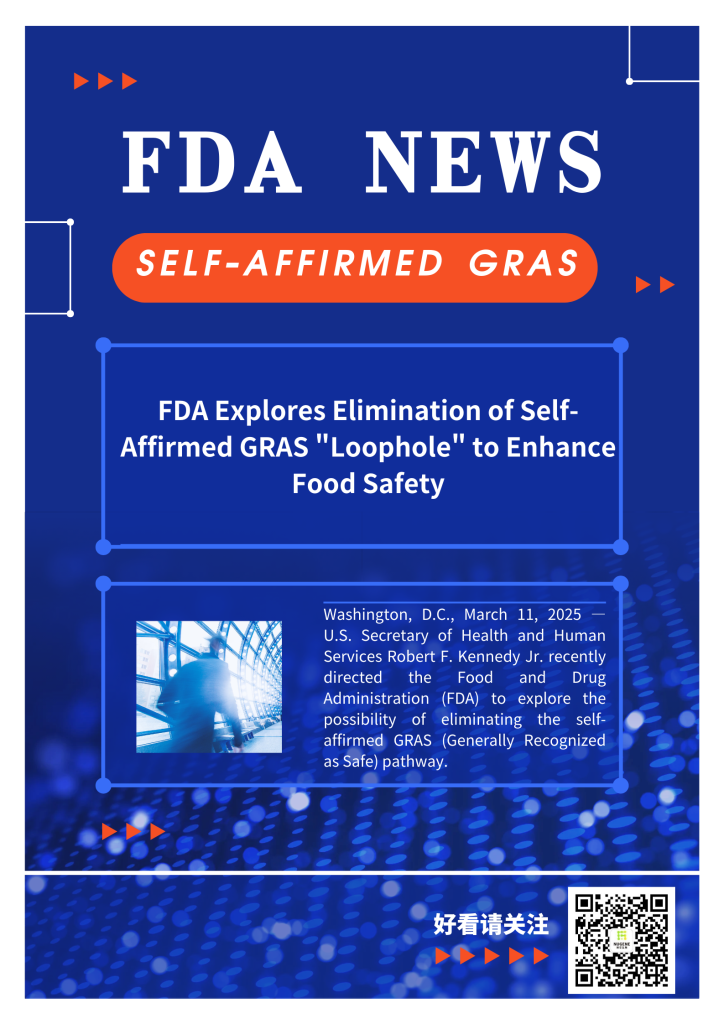
Washington, D.C., March 11, 2025 — U.S. Secretary of Health and Human Services Robert F. Kennedy Jr. recently directed the Food and Drug Administration (FDA) to explore the possibility of eliminating the self-affirmed GRAS (Generally Recognized as Safe) pathway. This initiative aims to enhance the transparency and safety of food ingredients, ensuring that substances introduced into the U.S. food supply meet safety standards.
GRAS refers to substances added to food that are deemed safe under specific conditions of use. Companies can choose to submit safety data to the FDA, and if there are no objections, the agency issues a “no objection” letter. However, the self-affirmed GRAS mechanism allows companies to confirm the safety of ingredients without notifying the FDA, leading to a lack of transparency and potential safety risks.
Kennedy stated, “For far too long, ingredient manufacturers have exploited this loophole to introduce new ingredients and chemicals, often lacking safety data, without notifying the FDA or the public. Eliminating this loophole will enhance consumer trust and help get our nation’s food supply back on track.”
In response, Daniel Fabricant, CEO of the Natural Products Association, commented, “This exploratory phase deserves attention, particularly regarding enforcement. While some may rush to panic, this process is still in the preliminary discussion stage.”
Legal expert Ivan Wasserman noted that requiring all ingredients to be approved by the FDA before being added to food or supplements would require Congress to change the law. He indicated that this notice could mean making the current voluntary GRAS notification program mandatory, where companies would need to submit their self-affirmations to the FDA.
Scott Faber, Senior Vice President for Government Affairs at the Environmental Working Group, expressed concern as well. He pointed out that the ability for chemical companies to bring substances to market without notifying the FDA highlights serious flaws in the U.S. food chemical safety system. He urged the FDA to take substantive action to ensure the safety of food chemicals.
In conclusion, the exploration of eliminating self-affirmed GRAS is expected to bring positive changes to food safety in the U.S. and enhance public trust in food safety. As this process develops, dialogue among regulators, industry, and consumers will become increasingly important to ensure the safety and transparency of the food supply.

